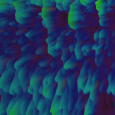-
Posts
47 -
Joined
-
Last visited
About Michael Armstrong
- Birthday 11/14/1992
Profile Information
-
Gender
Male
-
Location
Tempe, Az
-
Occupation
Music Student
-
Interests
Composing, Debating, Philosophy
-
Favorite Composers
John Williams, Beethoven, Tchaikovsky, J.S. Bach, C.P.E. Bach, Eric Whitacre
-
My Compositional Styles
Still Figuring That Out
-
Notation Software/Sequencers
REAPER, Sibelius 7
-
Instruments Played
Guitar (Classical, Jazz, & Pop), Bass, Percussion, Flute, Voice (Tenor), Piano (Badly)
Recent Profile Visitors
Michael Armstrong's Achievements
-

2014 Summer Competition
Michael Armstrong replied to ChristianPerrotta's topic in Monthly Competitions
I'll join the competition! -
So, when I first started theory I was told that retrograde (movement from a dominant function chord to a pre-dominant function chord) was strictly forbidden in common practice harmony. However, while working through Hindemith's "Traditional Harmony" I found that several of Hindemith's prescribed progressions in the exercises have retrograde progressions. So, is retrograde strictly forbidden? Are there exceptions? Am I just stupid? Discuss.
- 13 replies
-

Call For Scores: Horn And Percussion Duet
Michael Armstrong replied to a topic in External Competitions
I have no idea why this posted as a guest. I am the one who started this thread. Any questions about the competition can be posted here or sent to me in a message and I will respond to the question(s) as soon as possible.- 1 reply
-
- competition
- call for scores
-
(and 2 more)
Tagged with:
-

Theme And Variations Piano Composition Contest
Michael Armstrong replied to Sonataform's topic in External Competitions
I'm in. I've been meaning to work on a theme and variation anyways. :)- 25 replies
-
- 1
-

-
- theme
- variations
-
(and 4 more)
Tagged with:
-

Who In Your Opinion Is The Greatest Living Composer?
Michael Armstrong replied to luderart's topic in Repertoire
Oh hey, someone finally said it, so it is safe to say. I am going with Whitacre for best CHORAL composer alive. I know that he is a one-trick pony, but boy is he good at that trick. -

Entries: May–June Competition, 2013
Michael Armstrong replied to luderart's topic in Monthly Competitions
Here is my entry: http://www.youngcomposers.com/music/4837/the-first-face/ -
So, where did this whole "pop is tonal" thing come from? As someone who wasn't exposed to classical music until I was in college and instead listened to a lot of pop (in the broad sense) I find myself much better apt at identifying and writing in modes rather than in the tonal system. Now, maybe some of the very, very popular pop music is tonal in some sense, but a large portion of it is also very modal. This is especially true in guitar-based pop, due to guitar's natural affinity for the Phrygian, Aeolian, and the Lydian modes. So, why do so many classical musicians claim that pop is, as a rule, tonal?
-

How Finicky Do You Get With Your Markings?
Michael Armstrong replied to pateceramics's topic in Composers' Headquarters
Just a final reply to Cadenza and .fseventsd: No, I do not want music to return to how it was in the 19th and 18th centuries. Nowhere in my posts did I say that. At all. Yes, all of those movements have influenced new musicians, but very few are making a significant impact on our culture. Most are writing music that is performed once, usually in an academic setting, and then never heard again outside of that academic setting. Also, Cadenza, how can you say that installation and program music aren't art music? YOU are the one who is confused. Something can be art music without being absolute music. Is opera not art music? Is Tchaikovsky's Romeo and Juliet not art music? No, it IS art music. It is not, however, absolute music. Also, my views of music's worth is not in mainstream integration. Bach's music was good. It was always good. During his life it was never integrated into the mainstream. And nowhere did I say that any movement was, in and of itself, bad. Only that these movements failed to become significant. Yes, some did change how we view music. But the music itself did not do that. The theory behind it did. The music never succeeded outside of academia. You assume that, because I believe that music should be pleasant to listen to, that I believe that all non-tonal music is bad. That simply is not true. I simply do not agree with how anyone who writes in these modern movements is given a free pass to write music that sounds BAD. Not that those movements cannot have good music, but the composers use the movements as excuses to not have to work harder to write things that sound pleasing to the ear in the name of "experimentation. I won't respond anymore, however, as this is not the point of this thread. -

How Finicky Do You Get With Your Markings?
Michael Armstrong replied to pateceramics's topic in Composers' Headquarters
I am not ignoring those styles. Most of them came and passed without any significant addition to our culture. They were fads. Serialism never took off outside of universities, aleatoric music is considered nonsense outside of avant-garde music circles, spectralism failed to gain an audience, and even performers for the most part. New complexity suffered the same fate as the others, being completely incomprehensible unless you knew the score inside and out. Electronic music in art music is a sad joke. Art music composers refuse to admit that pop musicians and audio engineers are decades ahead of them in how to utilize electronics in music, and refuse to learn from them. Insisting that the same, dull effects that pop and rock musicians used 30-40 years ago are "new" and "fresh". I wouldn't consider sound installations an advancement in music itself, simply a new venue in which music is performed. And I quite love the idea of it. Neo-Classicism is the only style that you mentioned that didn't flop on its face and fail to become anything more than a pompous fad. Just because a style comes out of another style in a logical way doesn't mean it was an advancement. It's different. It has changed. Change is not innately good. Nor is being different. A style can make logical sense from where it came, and still be trash. And I would argue that music CAN get better. In the sense that there is good music, and bad music and in 40-50 years music from the past 40-50 years will be looked at as, generally, bad. Especially the music that is currently praised and forced down the throats of students by theory, history, and composition faculty. In 40-50 years the pop music of our time will be better remembered for its exquisite balance of intellectualism, poetry, and aural beauty than art music that never stopped trying to be experiment and do something completely new and therefore never mastered any single style to create beautiful music. Don't take this as me saying that all of these styles are innately bad, because they are not. The problem is that composers never settle on any single style long enough to master it. To say anything significant with it. They simply play with it a little, then toss it aside for the next movement, leaving a trail of mediocre scores behind them. There are, of course, exceptions to this, and every movement has at least SOME significant work, or at least an influence on a later significant work, but not enough to give merit to the movement and take it from the category of "bad" to "good". -- On the actual topic of the thread: I believe that use of markings has become both a blessing and a curse. Many, many composers (including my composition teachers) teach that absolutely everything you want to hear should be marked, and I agree with that with movie scores, sound installations, and some tightly choreographed dramas. However, doing this in concert music is insulting to the performer. You are telling the performer that they are too stupid to make this music say what you want it to say, and to say it significantly. You are saying that their 5, 10, 20, 50 years of training wasn't enough for them to even begin to understand what you could want from them musically. As a composer, you should also be an instrumentalist, so think like an instrumentalist. Would you WANT to play a score that demeaned you as a musician? Probably not. So I would say that marking should only be used when necessary. If you want a hairpin crescendo, then put it there. If you just want the phrase to be played with good expression and musicality than leave it up to the performer. Try to think of what you are actually trying to achieve with each marking, and how you, as a performer, would interpret the markings, and if they are truly necessary. -

How Finicky Do You Get With Your Markings?
Michael Armstrong replied to pateceramics's topic in Composers' Headquarters
I wouldn't say 50 years is a long time, because an actual style came out of it. In the 20th (and now 21st) century no real style ever came about and had a significant impact. Every decade or so a new style would become vogue, have a few pieces written, and then be left having been experimented with, but never mastered. I do not think we are progressing faster musically than we once were. We are just having more material created and then discarded without any actual development or movement in music. Music isn't getting better, it is moving laterally from one genre/technique to the next. And sorry if my original post was harsh. I did not mean to imply you did not like the great masters of music. -

How Finicky Do You Get With Your Markings?
Michael Armstrong replied to pateceramics's topic in Composers' Headquarters
You made quite a few assumptions (some quite rude) in that last paragraph. Just because a piece of music NOW sounds "stodgy" does not mean it did at the time. In fact, Bach was constantly criticized for being too old-fashioned, and not writing in the "new" style of the time, the style gallant. Audiences of the past had very little tolerance for styles they considered old and tired. And as for there being no revolutionary changes during "ye olden tymes", that is just silly. The transition between the Baroque era and the Romantic era was only fifty years long. Western art music went from pure counterpoint, with no use of chords as we think of them, to being almost purely homophonic chords with a melody in only fifty years. Lastly, performers could NOT be counted on to understand what the composer wanted. There are countless accounts of composers being humiliated by terrible performances by sub-par performers throughout the common practice period. However, when a piece had great performers excessive markings would only be detrimental to the realization of the piece. I agreed with your first paragraph in your post, but your last one seemed superfluous and used far too much ignorant essentialization. I even agree with your observation about experimental and atonal works needing more markings than more traditional works do. But don't insult the great masters of the past by insinuating that their music was old and uninventive when it was first written. They were revolutionary for their time. During their time their music was considered insane and often unintelligible by any but the best performers of the era. -
See, I was taught to analyze that Bb as a borrowed tone from the parallel minor, rather than a temporary shift to ii. What makes your example (and Schumann's) a secondary subdominant, rather than a borrowed chord/tone?



